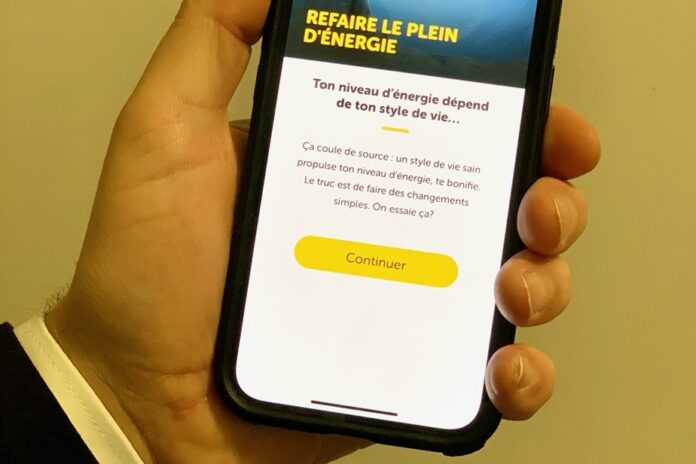Launched this Tuesday by the Young Bar of Quebec, this mobile application created by a Quebec company allows young lawyers to become aware of their state of well-being, to take action on the aspects of their life that they consider important to improve and monitor its progress. Whether it is physical or mental health, balance between different aspects of life or relationships with others. This free app is personalized based on practice area. The Young Bar of Quebec, which launched the debate on the right to disconnect in spring 2023, wants to go even further so that young lawyers take care of their physical and mental well-being. In addition to the application, volunteers are participating in action research by the Relief Research Chair in mental health, self-management and work at Laval University. The results of this year of research will allow the Young Bar of Quebec to learn more about the situation, concerns and needs of its members so that they can practice in a more caring environment. The app and research are part of Project Balance.
New probe into the situation in the city center of the Chamber of Commerce of Metropolitan Montreal. The data confirms the persistence of hybrid work, as 87% of workers are back in the office at least once a week, up from 81% in fall 2022 and 61% in fall 2021. For their part, 65% of companies require presence in the office at least one day a week. The CCMM also indicates that flexibility on the daily schedule (53%) and cross-team activities (47%) are the most popular elements to encourage workers to come to the office. Workers (42%) would dream of their employer paying for public transportation costs, which would be a good incentive to go to the office, but only 18% do so. No less than 53% of workers find accessibility to the city center difficult. The timetables and frequency of public transport passages are also a major irritant for 70% of users, while car use is experiencing a slight increase, going from 46% in 2022 to 54% in 2023.
He is the star of all the stands, both envied and feared. Capable of generating content, texts, sounds and images, generative artificial intelligence (AI) is used at work by 26% of Quebecers, a higher rate than the 22% who use it in the rest of Canada . According to the most recent KPMG in Canada survey on the adoption of generative AI, employees in Quebec are using it for research (48%), idea generation (42%) and creating presentations ( 30%), but 49% say they systematically verify the accuracy of information produced by generative AI. As an employer, you must be on the lookout and provide training on the proper use of AI, because 17% of Quebec employees surveyed admitted to having entered private financial data about their employer and 14% have entered other information sensitive data such as supply chain and human resources data.
This is the number of working days per year lost by employees who suffer from workplace conflicts. For those with a diagnosis of anxiety, the number of days of absence rises to 53, while for those with a diagnosis of depression, this number rises to 56 days. This data comes from the monthly TELUS Health Mental Health Index, which measures the mental health status of workers in Canada each month. In October, the mental health score of Canadian workers declined from 64.4 to 63.7. Levels of distress among Canadian workers are comparable to those reported during the pandemic: 34% of workers are currently at high risk of mental health problems, the same proportion as in October 2020.
Whether you are a manager, director or employee, you like to be appreciated at work. How do you express gratitude to your colleagues and employees? The Harvard Business Review offers formulas adapted from the book by Christopher Littlefield, specialist in team building. First, give context to your message, he advises. You might say, “I was thinking about our latest project this weekend and realized I never said thank you” or “We’ve been so busy lately that I realized I haven’t took the time to tell you how much I appreciate your work.” Then say what you like and why. Clearly explain how their actions impacted your experience at work. The more specific you are in your message, the greater the impact will be.















